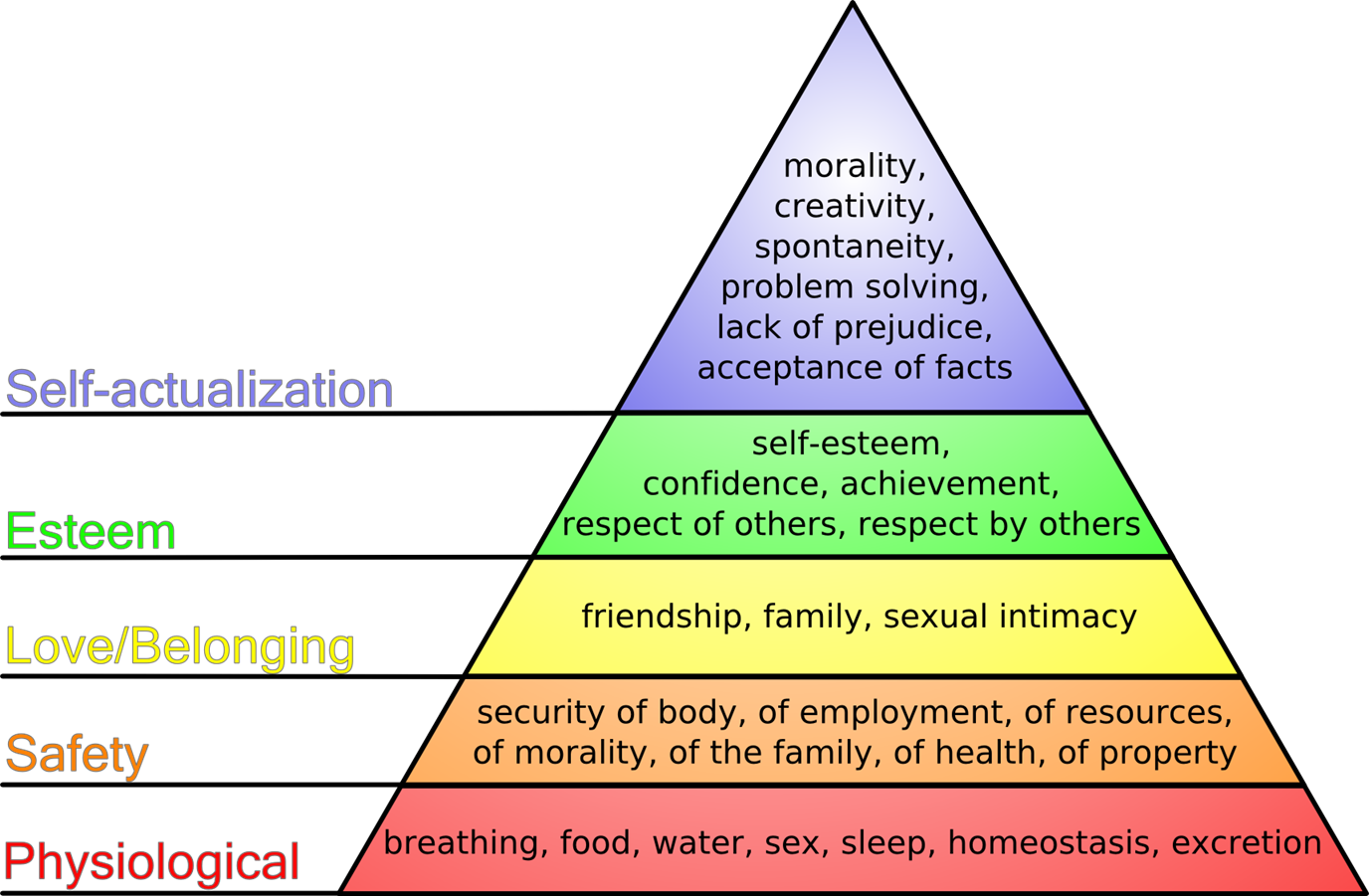What's the 1 thing everyone wants?
If we knew that then we would have a much better chance of understanding others, communicating with others, working with others...getting along with others...helping others...influencing others.
So let's explore that together.
One of the first things I can recall learning about human needs was Maslow's 'Hierarchy of Needs' [1940's psychology].
With 'people's wants' in mind, Abraham Maslow spelled out the basics and the hierarchy of human needs...

Let's assume the basic needs are covered. Let's assume the physiological and safety needs are covered. That's a reasonable assumption: if you are reading this Thought Post then it is likely your basic needs are covered. You are reading in response to some other need.
After the basic needs are covered, what comes next? and - What's the 1 thing everyone wants?
Is Maslow right? Has he accurately narrowed it down to 4 things?, i.e., Love, Belonging, Esteem, and Self-actualization...with Love and Belonging coming ahead of Esteem and Self-actualization?
Perhaps the one thing everyone wants is:
- Love - that inexplicable state of mind that connects 2 human beings in a most-special way
- Belonging - that sense of connectedness, being part of something larger
- Esteem - containing value and being held in high regard
- Self-actualization - to realize one's full potential
In the late 1800's, Friedrich Nietzsche [my favourite philosopher] had a strong and clear view:
"Physiologists should think again before postulating the drive to self-preservation as the cardinal drive in an organic being. A living thing desires above all to vent its strength - life as such is will to power -: self-preservation is only one of the indirect and most frequent consequences of it."
'Venting one's strength' - that's a different twist. It captures both Esteem and Self-actualization.
Sigmund Freud had a different view, which he expressed about 100 years ago. He felt people's actions are a result of two major drives: the sex urge and the desire to be great. And, he wrote:
“What we call happiness in the strictest sense comes from the (preferably sudden) satisfaction of needs which have been dammed up to a high degree.”
If we extract the physiological drive [sex urge], we are left with 'the desire to be great'.
The often-quoted philosopher William James said, "The deepest principle in human nature is the craving to be appreciated."
And Dale Carnegie, mirroring the views of philosopher John Dewey, taught - "The deepest urge in human nature is the desire to be important."
There's a common thread here:
Everyone wants to use personal strengths to create value and influence others to confirm appreciation of that value.
***
For another day...
Internal: one's Strength [Innate Talent + Opportunity + Specialized Knowledge + Practised Skills = Strength]
Action: more than just thought
Ego: the thing that craves
External: internal locus of control is at play here
Influence: it is not enough to just do, others must be affected...others must be influenced
***
And - no wonder Constructive Criticism is an Oxymoron.